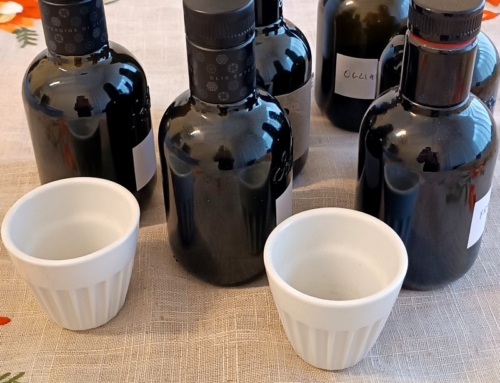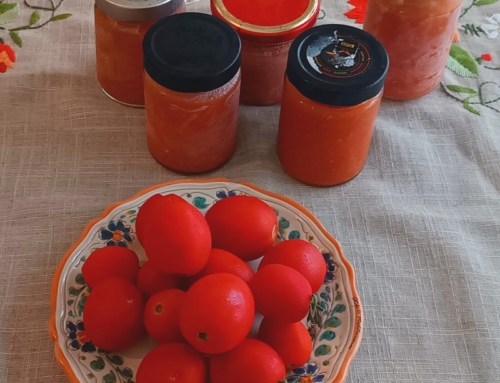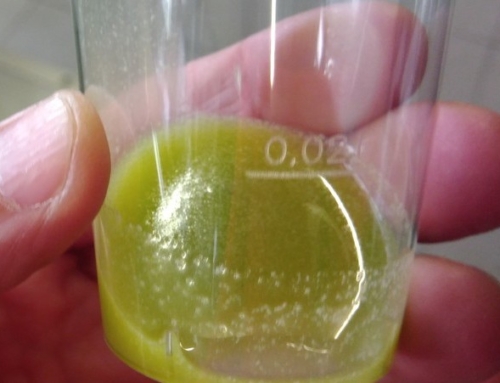Extra virgin olive oil is made of, among the other things, oleic acid (monounsaturated fatty acids which reduces the level of LDL (bad) cholesterol and increases the level of HDL (good) cholesterol), Vitamins E, A, D, polyphenols (1).
Thanks to the intake of the monounsaturated fatty acids, flavonoids, polyphenols, extra virgin olive oil has a preventive effect on several types of tumors and reduces the risk of atherosclerosis (2).
Not all extra virgin olive oils have the same quantity of polyphenols (natural antioxidants).
The polyphenols content can vary based on the olive variety (coratina vs ogliarola vs cellina etc.; in Italy we have about 538 varieties of olives), or other factors, such as the time of the harvest.
It is not required to indicate the polyphenols content on the label and several producers do not even check their EVOO’s polyphenols as this laboratory analysis can be very expensive.
On the store shelves, you can find extra virgin olive oils with polyphenols content of 100 mg/kg, which is low. For good EVOOs you can have 200mg/kg.
I am very proud to let you know that our Stile Mediterraneo extra virgin olive oils have on average a polyphenols content of 550 mg/kg.
On exceptional years, we reached 941 mg/kg for the Green Season and 764 mg/kg for the Equilibrium labels.
These unbeatable results are only due to the unique varieties of olives we use, the early harvest and the extreme care our olives go through throughout the process, even at the cost of lower quantity.
The higher antioxidant content results in a much “bitter taste” and “peppery” effect in the throat (as if you need to cough), when you do a tasting (without food). Both bitter taste and peppery effect are indicators of very high quality.
People who are not expert in olive oil may think that bitterness or peppery effect are due to the higher “acidity” of the olive oil: this is completely wrong as the acidity can only be measured in a laboratory (and good olive oils with high antioxidants very likely have very low acidity). BTW our 2018 extra virgin olive oils have very low acidity level of 0,24, which is another excellent result (according to an international law, olive oils that have acidity level up to 0,8% can be called extra virgin).
You should always look for EVOOs that make you cough, otherwise it means they lack antioxidants. And if possible you should always ask your producer to provide you with: 1)acidity level and 2)polyphenol content (none of these two are found on the label).
(1) See Dr. Marika Rascazzo’s ebook Mediterranean Secrets for a healthy and happy life.
(2) It is necessary to remember that extra virgin olive oil is a fat and should be consumed in moderation. Also, it should be used as a substitute for saturated fats and not in addition to them.





